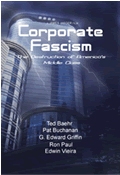BETRAYAL: WHY AMERICANS CAN NEVER BLINDLY TRUST GOVERNMENT
By
John Anthony
April 14, 2015
NewsWithViews.com
Americans look to government programs to provide social, environmental and economic protections. Many do not realize, that, in addition to its 'good works', government is often the most corrupt and secretive entity in the social equation.
Public treachery is equally distributed among democrats and republicans, left and right. Here are three recent examples of betrayal by the people upon whom we depend.
Subject: Florida’s regional ‘flip’
Under Florida State law, all counties must join and pay dues to support a Regional Planning Council. In addition to the added fees, many Floridians oppose RPC’s because they receive millions in grant money, which forces them to advance the federal government’s “Livability Principles” by implementing compact living, costly mass transit and even higher taxes. Regional Planning Councils also create a layer of unaccountable governance that often diminishes local authority.
After hearing concerned citizens, in January 2015, Republican State Senator Wilton Simpson, introduced SB 484, a bill that included the elimination of the 11 Florida Regional Planning Councils. Supporters were delighted to have someone on their side, even though they expected a tough fight to win passage. They never expected what happened next.
Bills
pass through several committees before going for a Senate vote. In the
first committee stop, before even reviewing SB 484, Senator Simpson
had  already
stricken all of the text that had eliminated Regional Planning Councils.
Not only were RPC’s safe, he added $2.5 million for their funding.
The Senator’s flip shocked community residents.
already
stricken all of the text that had eliminated Regional Planning Councils.
Not only were RPC’s safe, he added $2.5 million for their funding.
The Senator’s flip shocked community residents.
The official people believed was supporting their cause, not only betrayed them, he did so with no explanation and little opportunity for their response.
Subject: Congress ditches parents’ rights in name of "Success"
It is hard to conceive that, in America, any elected official would try to pass a bill waiving parents’ rights over their children’s education.
In February 2015, that and more are exactly what happened when US Representative John Kline, a MN Republican, sponsored HR 5, the Student Success Act. HR5 re-authorized the Elementary and Secondary Education Act, which gives states their critical Title 1 education money each year. On his website, Rep. Kline writes that his bill “reduces the federal footprint, restores local control… and empowers parents.”
That is not all it does. Section 6561, of the Act reads, “STATES TO RETAIN RIGHTS AND AUTHORITIES THEY DO NOT EXPRESSLY WAIVE.” The rights this section refers to are clearly stated, “State Sovereignty over Public Education and Parental Rights over the Education of their Children.” Why, would anyone want to “expressly waive” their rights over their children’s education? The stunning answer is in the next paragraph.
The text explains that to receive the HR5 grant money, States must approve the use of the grant money in their States’ budget. It then goes on…
“…by approving the budget, the State legislature is expressly approving the grant program and, in doing so, waiving the State’s rights and authorities…”
In other words, if the State accepts the grant money, they automatically waive their rights and those of parents over education. The State no longer has the “authorities to act inconsistently with any requirement that might be imposed by the Secretary” of the US Department of Education.
When TN public official Karen Bracken, called Kline’s office for an explanation of the paragraph, a staffer responded, “That was not what Rep. Kline intended.” Someone intended it, because upon releasing a second version of the bill, the same wording appeared, just on a different page. Senator Kline had betrayed every States’ education department and every school-parent in America.
Congress tabled the so-called Student Success Act. For now.
Subject: Net Neutrality neuters users
President Obama lobbied hard to manage internet providers through an FCC ruling called Net Neutrality. He argued Americans needed protection from broadband providers (ISPs) like AT&T, Verizon and Comcast that might restrict content. Under the president’s proposal, ISPs could not:
•
Discriminate among content providers (users) trying to reach you online
• Block or slow the traffic from websites or
services, or
• Provide a faster lane for some providers (users)
and not others
The Electronic Frontier Foundation was one of Net Neutrality’s biggest supporters, claiming it would defend digital civil liberties.
Opponents countered with, "defend them from what?" The internet is already open and free, the scarce offenses the president cited were trivial, already corrected; and government controlling the internet is a bigger neutrality threat than ISPs.
In February 2015, the democratically controlled FCC voted 3-2, along party lines to control the flow of information on the internet by declaring it a public utility under the name, Net Neutrality. They released the text of the ruling in March. As the president promised, Sustainable Open Internet Rules now govern how broadband providers deliver content. However, buried in the text are clauses proponents did not expect. Convoluted wording display the FCC’s willingness to violate free speech:
“…our rules would not violate the First Amendment because they would be considered content neutral regulations…” The government defines content-neutral regulations as ones that, “furthers a substantial government interest” and does “not burden substantially more speech than is necessary.”
The FCC maintains that free speech only applies to the person communicating, not the broadband providers who are “conduits” for that speech. While government controlling the “conduit,” might not stop free speech, it can thoroughly manage how far and wide that speech is distributed. After reading the released document, even the Electronic Frontier Foundation sees what they call,
“at least one worrisome bit: the repeated reference to ‘lawful content.’”
EFF now questions,
"Is the FCC saying it is OK to ‘throttle’ some content? How can the Internet providers determine what is ‘unlawful’ without snooping on their users?"
|
|
The rules’ text refers to the speech of the broadband providers, not users. But, by controlling one, you automatically manage the other, and the government’s record on transparency is far worse than that of any internet provider.
Through deceptive labeling and a marketing campaign that misled Americans, the federal government has rendered the ultimate betrayal. They handed themselves the ability to throttle free speech on the pretext of protecting us from those who never have.
The United States federal government has more power than any corporation or any other political body on earth. When people have power, they use it. It is up to Americans to assure they use it wisely.
© 2015 John Anthony – All Rights Reserved
John Anthony presents a communications workshop, Shattering America’s Trance, around the US, that teaches conservatives techniques for ‘preaching beyond the choir’ to expand their influence. John has spent 6 years touring with his Agenda 21 presentation, “False Choice, How Sustainable Development is Transforming your Community” and worked with his friend Tom DeWeese and the late Henry Lamb.
John
Anthony in the President of Sustainable
Freedom Lab, LLC
E-Mail: john@corporatemeasures.com
Website: Sustainable
Freedom Lab, LLC













 Share This Article
Share This Article





